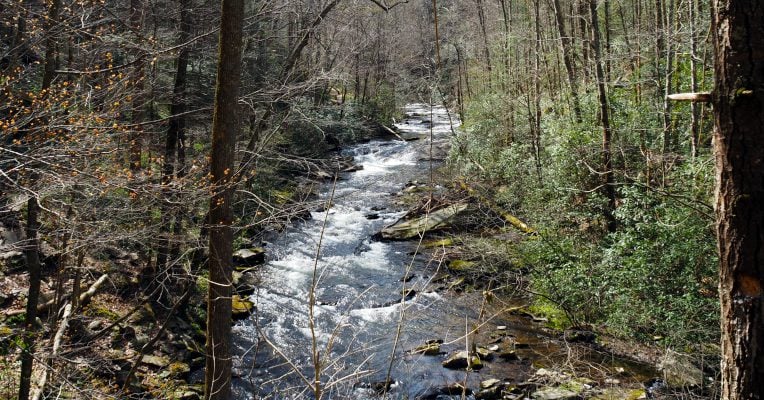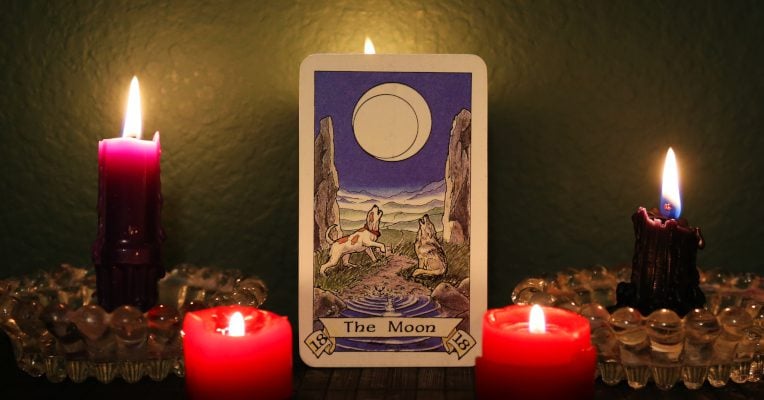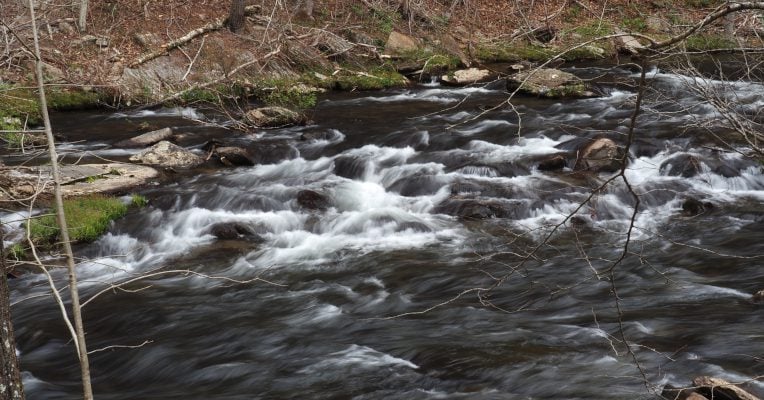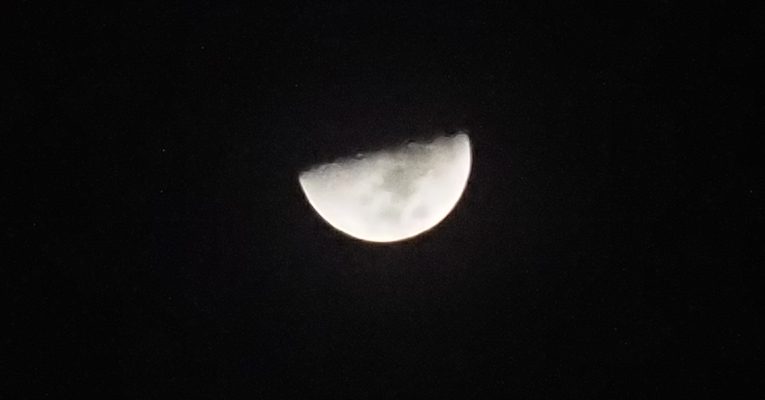Every time I start to narrow my practice down to something more manageable, I find myself presented with something new. Or in this case, with something very, very old.
Not in an “ooh, shiny!” sense, but in a sense of “this, too, is part of who you are.”
Not a distraction, but a reminder.
And an opportunity.
Operative magic is not the only magic
While I’m not a huge fan of Aleister Crowley, I lean heavily on his definition of magic: “the Science and Art of causing Change to occur in conformity with Will.” Magic is something we do. Magic is a cause that generates an effect. I’ve written a fair amount on magic over the years. My course in Operative Magic is the most popular of all the Under the Ancient Oaks online classes.
When I do my monthly full moon workings – or when I have a need that can’t wait for the next full moon – I usually do some form of sigil magic, kitchen witchery, or Traditional Witchcraft. These are different techniques from different traditions, but they share a common formula: a target, a method, and an action, all leading toward a desired result.
I get annoyed when people romanticize magic: “magic isn’t something you do, it’s something you are.” No. That’s a desire to feel special without having to actually do anything. I get even more annoyed when people say something like “magic is the experience of being alive.” Again, no. That’s an attempt to feel magical while clinging to a materialist worldview. Wonder and awe is beautiful and powerful, but it’s not magic.
All this is true. But still, magic is more than spells written in iambic pentameter.
The dog and the wolf both howl at the moon
I think my first reminder of this was a recent blog post by Damh the Bard titled “The Green Grimoire – The Book of Nature 1.” It’s mainly an announcement of things to come, but it included a concern about “what happens to spiritual paths when they become overtly human-centric.” It reminded me that for all my love of the many Gods and my service to Them, my first and strongest calling to Paganism was in Nature.
And then last week I was doing a Tarot reading for a client. The details are of course confidential, but at a key point The Moon turned up.
In the Waite-Smith deck and in Robin Wood (which I was using at the time), The Moon shows a dog (representing civilization) and a wolf (representing the wild) both howling at the moon. A crayfish crawls out of the water onto the land, representing our even older and wilder connections.
There is a wild magic that has nothing to do with target statements and tables of correspondences. Like the dog howling at the moon, it’s not something to be learned from books.
It’s something to be remembered.
Remembering something very old
Wild magic is religious in the sense that it acknowledges the reality of Gods and spirits, but it is not devotional. It is magical in the sense that it taps into unseen energies, facilitates Nature rearranging our priorities, and (at least occasionally) enables the Spirits of Nature to intercede on our behalf.
Wild magic is magic our proto-human ancestors could have practiced 2 million years ago (and likely did) because it does not require language.
It requires placing yourself in wild places and remembering what’s been forgotten over 10,000 years of civilization, 300 years of industrial society, and 60 years of the information age.
It requires connection.
Practicing wild magic
Practicing wild magic begins with returning to the wild, if only for a short time. Truly wild, undeveloped places are best, but any place outdoors will work, including your back yard. Nighttime is best, but dusk and dawn are especially magical times, and magic works just fine in daylight even though we seem to notice it more easily at night.
If you simply cannot go outside, bring the outside inside. Keep houseplants, open a window, light a fire or a candle, and mainly, turn off the electronics.
Don’t let the desire for the perfect wild environment keep you from doing what you can. Doing something is better than doing nothing.
And then listen.
Listen to the birds and squirrels, to the wind and rain, and to the dogs (and perhaps, other canines) howling at the moon.
Look up at the sky, look down at the dirt, look out at the trees.
Take in the smells.
What do you hear, what do you see, what do you smell? Don’t try to identify and classify everything. Just take it in. Experience it.
Remember that you’re a part of it.
Sense the energy – hear the spirits
And then listen with your other senses. Feel the energy moving around you.
What else is in the wild?
Who else is in the wild?
What are they saying? Are any of them speaking to you?
Listen.
And take care. Do not assume everyone you encounter is there to help you. Do not assume everyone wants to be your friend. Most just want to do their own thing and be left alone. Some, however, may share your values, your goals, your priorities. They may be willing work with you, and you may be able to learn something in the process.
Just remember the laws of hospitality and reciprocity, and be impeccable with your word.
Remembering our connections
This is all fascinating, but at the end of the day I’m an engineer, not a scientist – I want to know what I can do with it.
Wild magic is less about generating results and more about remembering who you are, and what you are.
The biggest lie civilization ever told us is that we’re not animals. We’re special animals, to be sure. We have opposable thumbs and big brains and the capacity for language. That lets us do things other animals can’t, or can’t do as well. That’s both good (modern medicine, the internet) and bad (nuclear weapons, advertising).
Wild magic reminds us that we’re animals, neither better nor worse than the other animals. The natural world is our home – we’re connected to it.
Wild magic also reminds us that we’re spirits, neither better nor worse than the other spirits. The spirit world is our home too – we’re connected to it.
Anything is possible when you know who you truly are
This is the primary benefit from wild magic: it helps you strip away all the masks, costumes, and programming of the modern world and understand who – and what – you truly are.
When you know who you are, you know what you want. Not what you think you want or what you’ve been told you’re supposed to want, but what you really want.
And when you know what you really want, it’s easier to select a target for your magical workings. Or, you know, go get it with mundane effort. Or better yet, with both.
Because learning how to do sigil magic or candle magic or poppet magic is easy.
Figuring out what to do those things for is hard.
Remember you’re an animal. Remember you’re a spirit. Remember you’re connected to all the other animals and all the other spirits in this world, and in the Otherworld. It’s not enough to intellectually acknowledge that these things are true. You need to feel them in your bones. You need to feel them in your soul.
Wild magic has to be experienced.
Now, go howl at the moon.




















